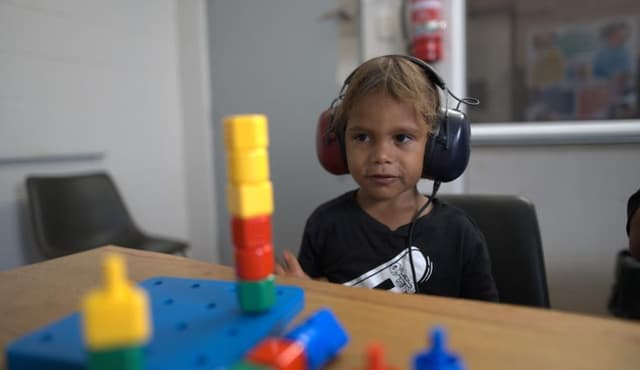Understanding Children
Executive functioning is much harder for children from chaotic households

Freya Lucas
Jan 06, 2022
Save
Children who are living in households with ‘chaotic’ home environments with divorce, instability, frequent house moves, substance abuse and other issues have worse executive functioning, a study recently published in BMC Psychology has found.
Executive functions begin to develop in early childhood, and help to guide children’s mental processes, emotions, and behaviors. These functions include inhibition, cognitive flexibility, and working memory.Study authors sought to learn more about how chaotic environments influence executive functioning in kindergarten-aged children, also exploring the potential role of parental responsiveness, proposing that children living in chaotic households are likely to experience fewer positive parent-child interactions.
To reach their findings researchers drew on a final sample of 128 children and their mothers. The children were an average age of five years, and most (88 per cent) of the mothers were either married or in common-law relationships.
During two-hour home visits, mothers completed various questionnaires concerning the level of chaos in their home, the amount of times their child had moved in the past year, changes in their relationship status (e.g., divorce, remarriage), and their own depressive symptoms.
Both mothers and children completed a battery of tasks measuring various aspects of executive functioning — attention/inhibition, cognitive flexibility, and working memory. The mothers were also filmed while they gave tours of their homes and while they interacted with their children.
Researchers then coded the transcripts of the home tours for word frequency counts related to disorganisation and instability, two dimensions of household chaos. They also coded the mothers’ behaviour as they interacted with their children, scoring them on parental responsiveness.
Positive parental responses correlated with executive function
Children who had parents who were more responsive had higher executive functioning scores, while children who lived in more chaotic homes had less responsive mothers, and in turn, had lower executive functioning scores.
Researchers also found that unstable houses had the most impact on children’s executive function, most likely because these homes require parents to adjust to a changing environment, leaving them with less energy and focus to engage in supportive interactions with their children.
The study authors suggested that an unstable household might also lead children to withdraw or feel helpless, which can limit their chances of receiving the positive interactions needed to nourish executive functioning.
Establishing regular family routines, including bedtimes and mealtimes, is an important aspect of ensuring that children have a sense of structure and stability.
Future directions for the researchers include using longitudinal design to assess the causes of dysfunctional homes, and explore the cumulative effects of chaotic households.
“There are still many questions to be answered within the area of household chaos and child/family outcomes. For example, in our study we noticed that there were not many studies that looked at the effects of household chaos over time,” lead researcher Krysta Andrews explained.
“This is important because it can give us insight into the stability of its effects and whether there are certain developmental periods that are particularly vulnerable to one or more aspects of household chaos. It can also help us to identify certain factors that may buffer against the effects of chaos on child executive functioning (e.g., positive parenting practices). This is one of many questions that research studies are still exploring.”
The study, “Effects of household chaos and parental responsiveness on child executive functions: a novel, multi‑method approach”, was authored by Krysta Andrews, James R. Dunn, Heather Prime, Eric Duku, Leslie Atkinson, Ashwini Tiwari, and Andrea Gonzalez, and may be accessed here.
Don’t miss a thing
Related topics
Understanding Children
Compliance
General News
Politics
Allied Fields
Advocacy
In The Field
Innovative Research
Leadership
Professional development
Family Day Care
Long Day Care
NQF and Policy Changes
Outside School Hours Care
Preschool
Legislation
Changes
Examples
Affordability & Accessibility
Events News
Services
Products
Report Summaries
Reporting
Property


















